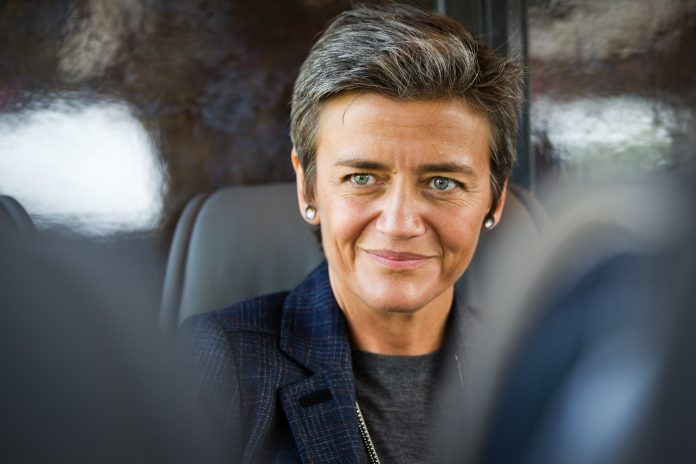IMCO and AIDA MEPs highlighted in the debate with Executive Vice-President Vestager that the EU rulebook on artificial intelligence has to guarantee transparency, safety and human oversight.
Internal Market Committee and Special Committee on AI held on Wednesday a discussion with European Commission Executive Vice-President Margrethe Vestager on the new rules and actions proposed to strengthen AI uptake, investment and innovation across the EU as well as to guarantee the safety and fundamental rights of people and support businesses. Many interventions concentrated on the Commission’s proposal for a first-ever legal framework on AI – Artificial Intelligence Act. “Our main goals are two-fold. We want to avoid fragmentation, and we want to achieve a functioning Digital Single Market without unnecessary cross-border barriers to free movement of goods and services. And we want to protect our citizens while doing it. Europe also needs harmonised rules to guarantee that AI-based goods and services and AI systems used in Europe are safe, and that they respect fundamental rights and EU’s values,” said Anna Cavazzini (Greens/EFA, DE), Chair of the Internal Market and Consumer Protection Committee (IMCO). “It is only by creating a shared rulebook that the EU can create transparency around the use of artificial intelligence solutions that have an enormous potential to benefit our societies and economies, be it in the fight against climate change, improving healthcare or optimising the use of scarce resources. We need to work towards a system that includes certified risk application, has human oversight and allows for tough enforcement to prevent discrimination and potentially disastrous consequences for people’s lives” she said. “The Commission has put forth an ambitious proposal, the first of its kind worldwide in terms of scope and potential impact on the digital future. We now need to work to ensure its success” said Dragoș Tudorache (Renew, RO), Chair of the Special Committee on Artificial Intelligence in a Digital Age (AIDA). “Our mission going forward is: to strengthen the protection of our citizens’ rights and privacy; to remove any unnecessary regulatory burdens and provide regulatory clarity for our companies so they can thrive. We must support innovation, our start-ups and our SMEs. We must educate our citizens on AI, train our specialists on AI, and ensure that Member States are aligned on implementation and that the “AI Act” works to strengthen the digital single market” he said. “We need to work with the US and other democracies to ensure AI is developed according to democratic values worldwide. AI is a geopolitical subject, and the EU is a geopolitical actor. We have a historical opportunity to show global leadership and to signpost the digital future according to our values, in the days and months to come,” he added.
Following Commission proposal for first-ever legal framework on AI in April, the Parliament has launched its preparatory work on the legislation. Parliament has recently adopted several legislative and own-initiative reports on how AI should be regulated in the EU:
Adopted reports
- Legislative
- Civil liability regime for artificial intelligence, Axel Voss (EPP, DE)
- Framework of ethical aspects of artificial intelligence, robotics and related technologies, Iban Garcia del Blanco (S&D, ES)
Own-initiative
- Intellectual property rights for the development of artificial intelligence technologies, Stephane Sejourne (Renew, FR)
- Guidelines for use of AI the military and civil sector, Gilles Lebreton (ID, FR).
- Artificial intelligence in education, culture and the audiovisual sector, Sabine Verheyen (EPP, DE)
- Shaping the digital future of Europe: removing barriers to the functioning of the digital single market and improving the use of AI for European consumers, Deirdre Clune (EPP, IE)
Ongoing
- Artificial intelligence in criminal law and its use by the police and judicial authorities in criminal matters, Petar Vitanov (S&D, BG)
- Report on artificial intelligence in a digital age, Axel Voss (EPP,DE)

